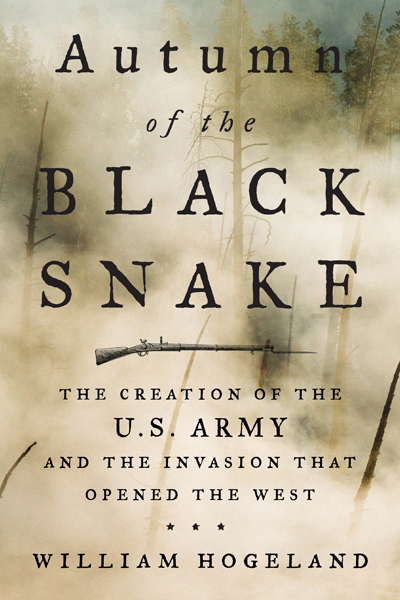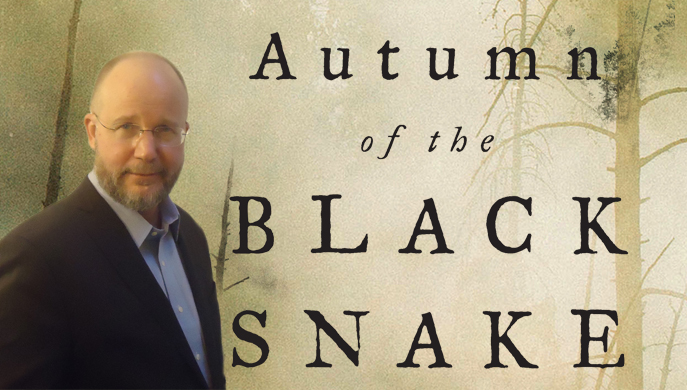
Record date:
William Hogeland transcript.pdf
William Hogeland, Autumn of the Black Snake, The Creation of the U.S. Army and the Invasion that Opened the West
Author William Hogeland visits the Museum & Library to discuss his newest book on the foundations of the U.S. Army following the Revolutionary War. Sponsored by Farrar, Straus, and Giroux.
In 1783, with the signing of the Peace of Paris, the American Revolution was complete. And yet even as the newly independent United States secured peace with Great Britain, it found itself losing an escalating military conflict on its borderlands. The enemy was the indigenous people of the Ohio Valley, who rightly saw the new nation as a threat to their existence. In 1791, years of skirmishes, raids, and quagmires climaxed in the grisly defeat of a motley collection of irregular American militiamen by a brilliantly organized confederation of Shawnee, Miami, and Delaware Indians―with nearly one thousand U.S. casualties, the worst defeat the nation would ever suffer at native hands. Americans were shocked, perhaps none more so than their commander in chief, George Washington, who came to a fateful conclusion: the United States needed an army.
Autumn of the Black Snake tells how the early republic battled the coalition of Indians that came closer than any adversary, before or since, to halting the nation’s expansion. In evocative and absorbing prose, William Hogeland conjures up the woodland battles and the hardball politics that formed the Legion of the United States, the country’s first true standing army. His memorable portraits of soldiers and leaders on both sides―from the daring war chiefs Blue Jacket and Little Turtle to the doomed Richard Butler and a steely, even ruthless Washington―drive a tale of horrific violence, brilliant strategizing, stupendous blunders, and valorous deeds. This sweeping account, at once exciting and dark, builds to a crescendo as Washington and Alexander Hamilton, at enormous risk, outmaneuver Thomas Jefferson, James Madison, and other skeptics of standing armies―and Washington appoints General “Mad” Anthony Wayne to lead the Legion. Wayne marches into the forests of the Old Northwest, where the very Indians he is charged with defeating will bestow on him, with grudging admiration, a new name: Black Snake.
Autumn of the Black Snake is a dramatic work of military and political history, told in a colorful, sometimes startling blow-by-blow narrative. It is also an original interpretation of how greed, honor, political beliefs and vivid personalities converged on the killing fields of the Ohio Valley, where the U.S. Army’s first victory opened the way to western settlement and established the precedent that the new nation would possess a military to reckon with.
WILLIAM HOGELAND is the author of several books on founding U.S. history, The Whiskey Rebellion, Declaration, and Founding Finance, as well as a collection of essays, Inventing American History. Born in Virginia and raised in Brooklyn, he lives in New York City.











